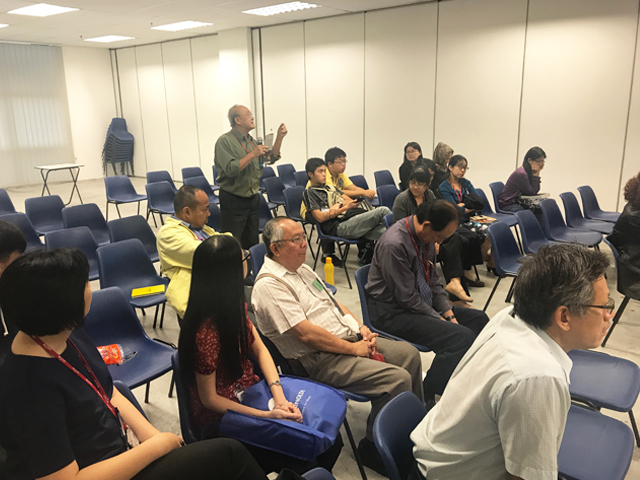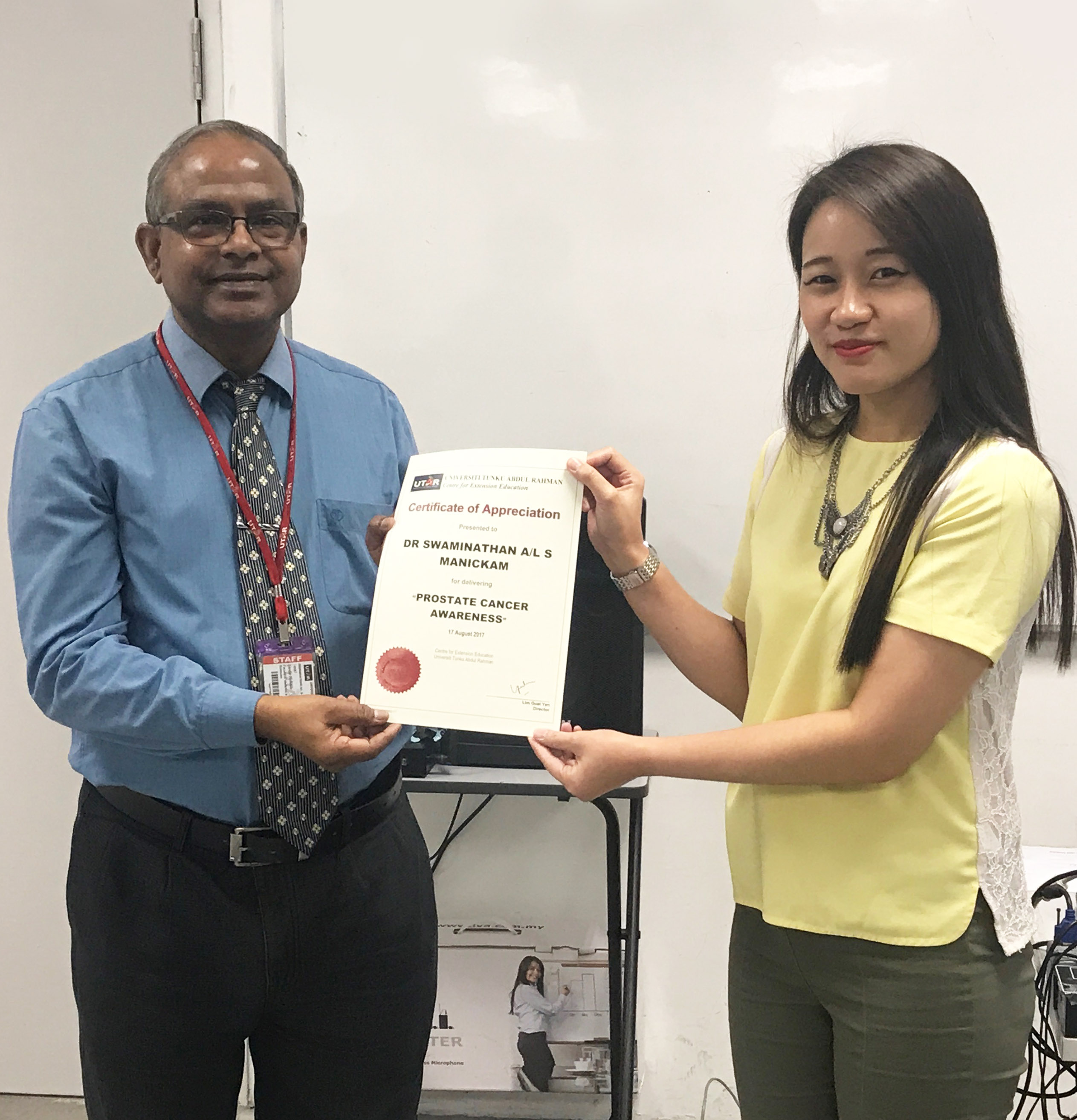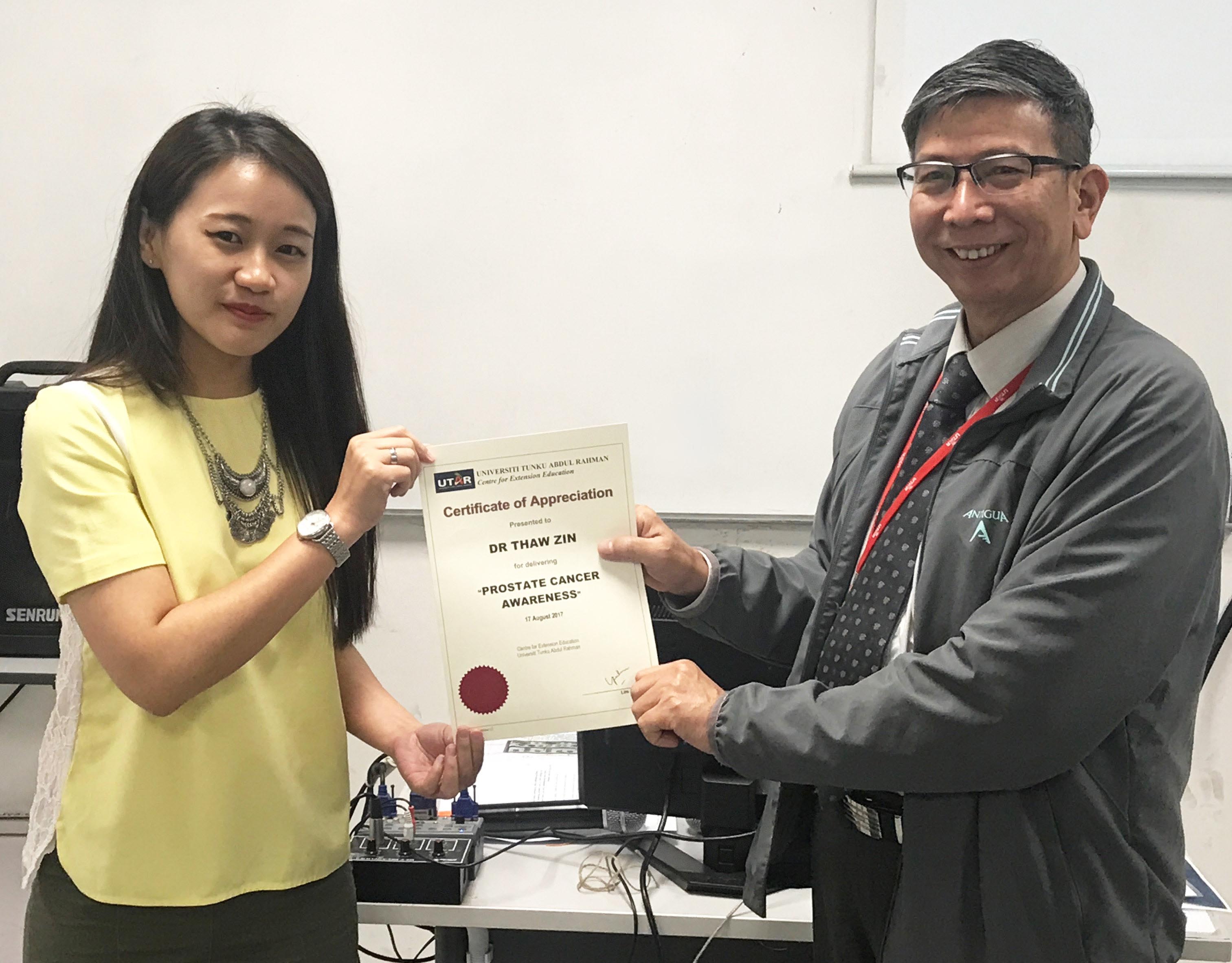

In collaboration with Centre for Cancer Research, Centre for Extension Education (CEE) organised the Prostate Cancer Awareness Talk on 17 August 2017 at Sungai Long Campus. The speakers invited to deliver the talk were Clinical Prof Dr Swaminathan S. Manickam and Clinical Assoc Prof Dr Thaw Zin.
They emphasised on a few topics including the general outline of the current treatment and management of prostate cancer, the pathogenesis of prostate cancer and the risk factors of prostate cancer, the available screening programmes for the prostate to reduce the risk of prostate cancer, increasing public health awareness of the importance of prostate health, and prostate cancer burden in the world and in Malaysia. The talk also highlighted the symptoms of prostate cancer, the warning and the prevention.
Prof Swaminathan remarked, “As men age, benign prostatic hyperplasia (BPH) or enlarged prostate is a common problem and it is not cancer. The prostate is a gland that surrounds the urethra, and when it is enlarged it can cause symptoms including the feeling of needing to urinate more often, or more urgently, or frequent night time urination. The types of proliferative lesions are different in each region. Most benign prostatic hyperplasia lesions arise in the inner transition zone while most prostatic carcinomas arise in the peripheral zones. Like all cancers, prostate cancer begins when a mass of cells has grown out of control and begins invading other tissues. Cells become cancerous due to the accumulation of defects, or mutations, in their DNA. Most of the time, cells are able to detect and repair DNA damage. If a call is severely damaged and cannot repair itself, it undergoes so-called programmed cell death or apoptosis. Cancer occurs when damaged cells grow, divide, and spread abnormally instead of self-destructing as they should.”
Assoc Prof Thaw said, “Most men, as they grow older, eventually develop some type of prostate problems and with usually, no easy solutions. Roundtable discussions of experts in prostate research revealed that interview with men about treatment decisions is the only way to provide information needed to understand the current controversies, avoid common pitfalls, and make informed choices about prostate health. Men with the same condition and symptoms might opt for very different treatments or choose to do nothing at all. Treatment decisions are generally based on patients’ age, comorbidities, access to treatment, stage and grade of the tumour, and preference (health-related quality of life).”
“Since only the prostate releases Prostate-specific antigen (PSA), detecting PSA after surgery (biochemical recurrence) could signify that prostate cancer cells are lingering and forming new tumours before they can be seen with modern imaging technology. Although PSA is not always reliable for cancer screening, it is a very sensitive marker of new cancer growth after initial treatment. Biochemical recurrence is usually treated by irradiating the prostate bed, or the area where the gland used to be. This treatment, called salvage radiation, helps minimise the risk of prostate cancer to recur and spread or metastasize,” he added.
The talk ended with a souvenir presentation to the two speakers.

The audience during the Q&A session

CEE English Unit Head Raiza Azni binti Suhainih (right) presenting a token of appreciation to Prof Swaminathan

Assoc Prof Thaw receiving token of appreciation from Raiza
© 2019 UNIVERSITI TUNKU ABDUL RAHMAN DU012(A).
Wholly owned by UTAR Education Foundation Co. No. 578227-M LEGAL STATEMENT TERM OF USAGE PRIVACY NOTICE